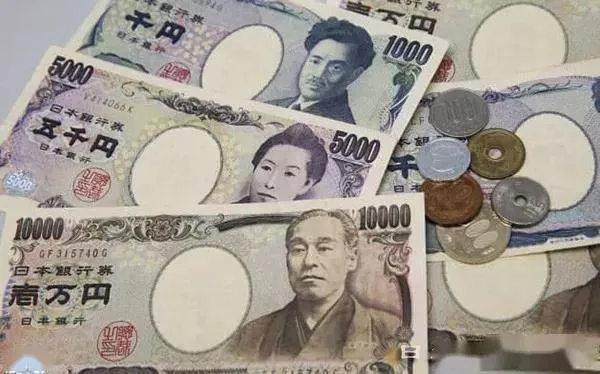The 10,000 yen note is one of the highest denominations of Japanese currency, playing a crucial role in the financial landscape of Japan. Understanding the acceptance and use of these notes is essential for individuals and businesses involved in financial transactions within Japan. This article explores the practicalities surrounding the acceptance of 10,000 yen notes, including their usage in daily transactions, their status in financial systems, and the implications for international travelers and businesses.
Historical Context of the 10,000 Yen Note
The 10,000 yen note has a significant historical presence in Japan’s currency system. Introduced in 1984 as part of the new series of banknotes, it features prominent figures such as Fukuzawa Yukichi, a renowned intellectual and educator. This denomination was designed to simplify large transactions and reflect Japan’s economic stature. Its historical context highlights its importance in facilitating high-value transactions and its role in the evolution of Japanese currency.
Current Acceptance of 10,000 Yen Notes in Japan
In Japan, the 10,000 yen note is widely accepted in most transactions, from retail purchases to larger financial dealings. Its use is prevalent in both urban and rural areas, reflecting its integral role in the Japanese economy. Businesses, ranging from small shops to large corporations, generally accept 10,000 yen notes without issue. However, there are specific contexts where the acceptance of these notes may vary.
Limitations in Retail and Small Business Transactions
Despite their widespread acceptance, 10,000 yen notes can encounter limitations in certain retail and small business transactions. Smaller establishments or those with limited cash handling capacity may prefer lower denominations for practical reasons. This preference helps them avoid issues related to change and reduces the risk associated with handling large sums of cash. In such cases, customers may be requested to use smaller denominations or alternative payment methods.
Acceptance in Financial Institutions and Automated Systems
Financial institutions and automated systems in Japan, such as ATMs and vending machines, generally handle 10,000 yen notes with ease. Banks and ATMs accept these notes for deposits and withdrawals, reflecting their role in everyday financial operations. Automated systems are designed to accommodate high-denomination notes, ensuring smooth transactions for users.
See Also: What is the Best Way to Get Japanese Yen Money?
However, it is important to note that not all ATMs may accept 10,000 yen notes, especially older models or those in rural areas with limited cash handling capabilities. Additionally, certain vending machines and automated services might not accept high-denomination notes due to constraints in change provision.
International Use and Acceptance of 10,000 Yen Notes
For international travelers, the acceptance of 10,000 yen notes outside Japan can be problematic. While these notes are widely accepted within Japan, their use abroad is limited. Most foreign merchants and financial institutions do not accept Japanese yen in such high denominations. Travelers should be aware of this limitation and consider exchanging their yen for local currency at financial institutions or currency exchange services.
Exchange and Conversion Challenges
Exchanging 10,000 yen notes for local currency can present challenges, particularly if travelers do not plan their transactions carefully. Currency exchange services may impose fees or offer less favorable rates for high-denomination notes. To avoid potential inconveniences, travelers should consider converting their yen into smaller denominations or using credit and debit cards for transactions abroad.
Practical Considerations for Businesses
Businesses operating in Japan need to be aware of the practical considerations associated with accepting 10,000 yen notes. While they are generally accepted, businesses should ensure they have appropriate change and handling procedures in place. This may involve training staff on the handling of high-denomination notes and implementing security measures to prevent fraud.
For businesses that frequently deal with large cash transactions, it may be beneficial to use secure cash handling solutions, such as cash management systems, to streamline operations and minimize risks. Additionally, businesses should stay informed about any changes in currency regulations or practices that may impact the acceptance of high-denomination notes.
Regulatory Aspects and Anti-Money Laundering Measures
In Japan, the acceptance of high-denomination notes, including the 10,000 yen note, is subject to regulatory and anti-money laundering measures. Financial institutions and businesses must comply with regulations designed to prevent money laundering and financial crimes. These regulations may include requirements for reporting large cash transactions and verifying the legitimacy of high-denomination notes.
It is essential for businesses and financial institutions to stay informed about regulatory changes and ensure compliance with anti-money laundering measures. This may involve implementing robust internal controls and conducting regular audits to detect and prevent potential misuse of high-denomination currency.
Impact on Financial Planning and Cash Management
The use of 10,000 yen notes can impact financial planning and cash management strategies. For individuals, managing large denominations requires careful budgeting and tracking of expenses. High-denomination notes can simplify large transactions but may also require additional planning to ensure proper cash flow management.
Businesses, particularly those with high cash turnover, must consider the implications of accepting 10,000 yen notes on their cash management practices. Efficient cash handling procedures and effective financial planning are crucial to managing large sums of currency and ensuring smooth operations.
Conclusion:
The acceptance of 10,000 yen notes reflects their significance in Japan’s financial system and their role in facilitating large transactions. While they are widely accepted in most contexts within Japan, there are limitations and practical considerations to be aware of, particularly for retail transactions and international use. Understanding these factors and implementing effective cash management strategies are essential for businesses and individuals involved in financial transactions.
As technology continues to advance and digital payment methods gain prominence, the role of high-denomination notes may evolve. Staying informed about regulatory changes, technological developments, and practical considerations will help ensure a smooth experience in managing and accepting 10,000 yen notes.
Related Topics:




























